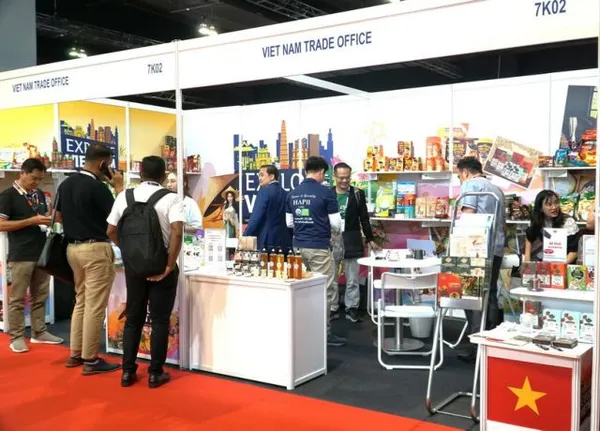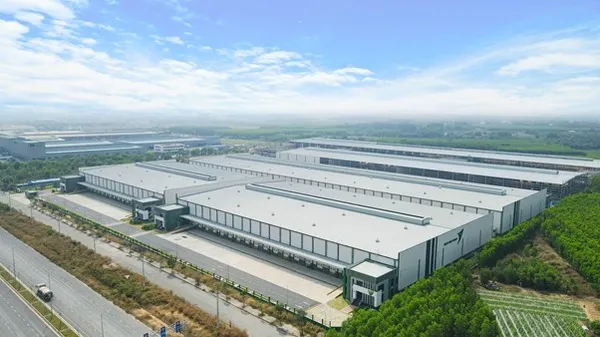 Economy
Economy

HDBank was named among the Top 10 Sustainable Businesses in Việt Nam in 2020 in the trading and services sector at a ceremony held to honour them on Thursday.
.jpg)
|
| HDBank has been named among the Top 10 Sustainable Businesses in Việt Nam in 2020 by the Việt Nam Chamber of Commerce and Industry in collaboration with relevant ministries and agencies. — Photo courtesy of the bank |
HCM CITY — HDBank was named among the Top 10 Sustainable Businesses in Việt Nam in 2020 in the trading and services sector at a ceremony held to honour them on Thursday.
It is for a second year in a row that HDBank makes the list.
The ceremony was attended by Vice President Đặng Thị Ngọc Thịnh, Government leaders, ministries and other government agency chiefs, and nearly 300 representatives of Vietnamese and international organisations and businesses.
The prestigious annual awards are given by the Việt Nam Chamber of Commerce and Industry (VCCI), Ministry of Labour - Invalids and Social Affairs, Ministry of Natural Resources and Environment, and Việt Nam General Confederation of Labour to honour the most sustainable companies.
Other major businesses to make the list this year include Sasco, PNJ, Vietjet Air, Novaland, Vietinbank, Bảo Việt, and Hưng Thịnh.
The ranking is based on the Corporate Sustainable Index (CSI), which has extremely stringent criteria.
HDBank met all the criteria, which attested to the fact that it actively applied the CSI in its operations and perfected its business model to bring the maximum benefits to customers, employees, shareholders, and the community.
This year HDBank has set aside VNĐ24 trillion (US$1.03 billion) for lending to SME customers and another VNĐ10 trillion ($432.2 million) for micro enterprises, business households and individuals to help them overcome the impacts of the COVID-19 pandemic.
It has also launched a number of credit packages. including one that offers loans at interest rates starting at just 6.5 per cent, another with interest rates that are 2 - 4.5 percentage points less than normal rates and a package for enterprises that distribute essential products to stabilise prices.
It also supports customers by rescheduling their debts and cutting fees for most services.
In line with the State Bank of Vietnam’s policy to promote ‘green’ credit and help sustainable growth in Việt Nam, HDBank has been at the forefront in lending to renewable energy projects, hi-tech agriculture and clean agriculture.
Under its five-year strategic plan (2020 - 25) HDBank seeks to become a ‘Happy Digital Bank', with a focus on developing Di HDBank application and enhancing connections with fintech companies, e-wallets and technology apps to provide the most advanced financial services and products to customers.
It offers customers a number of advanced technology-based mobile banking and internet banking services and digitises processes on course to becoming a digital and paperless bank.
It was one of the first four banks in the market to adopt online customer identification (eKYC), opening the door wide for developing a wide range of modern, convenient and safe digital banking services.
In 2019 it became one of the first banks to get the green light from the SBV to adopt capital adequacy ratio (CAR) norms based on Basel II.
Moody's credit rating agency maintains a credit rating of B1 for HDBank, a stable prospect, amid the ongoing volatility in the global banking industry.
HDBank has always made contributions to the country's sports.
For nine years now it has been associated with the HDBank International Chess Tournament.
It has also been a diamond sponsor of the National Futsal Championship to raise the country’s futsal on the regional and global stages since 2017.
As of September 30, 2020, the bank had assets of more than VNĐ273 trillion, while its return on equity and return on assets were 21.1 per cent and 1.9 per cent.
Its CAR based on Basel II was 10.9 per cent as against a minimum requirement of 8 per cent. Its bad debt ratio (separate) was 1.39 per cent, much lower than the industry average. — VNS




